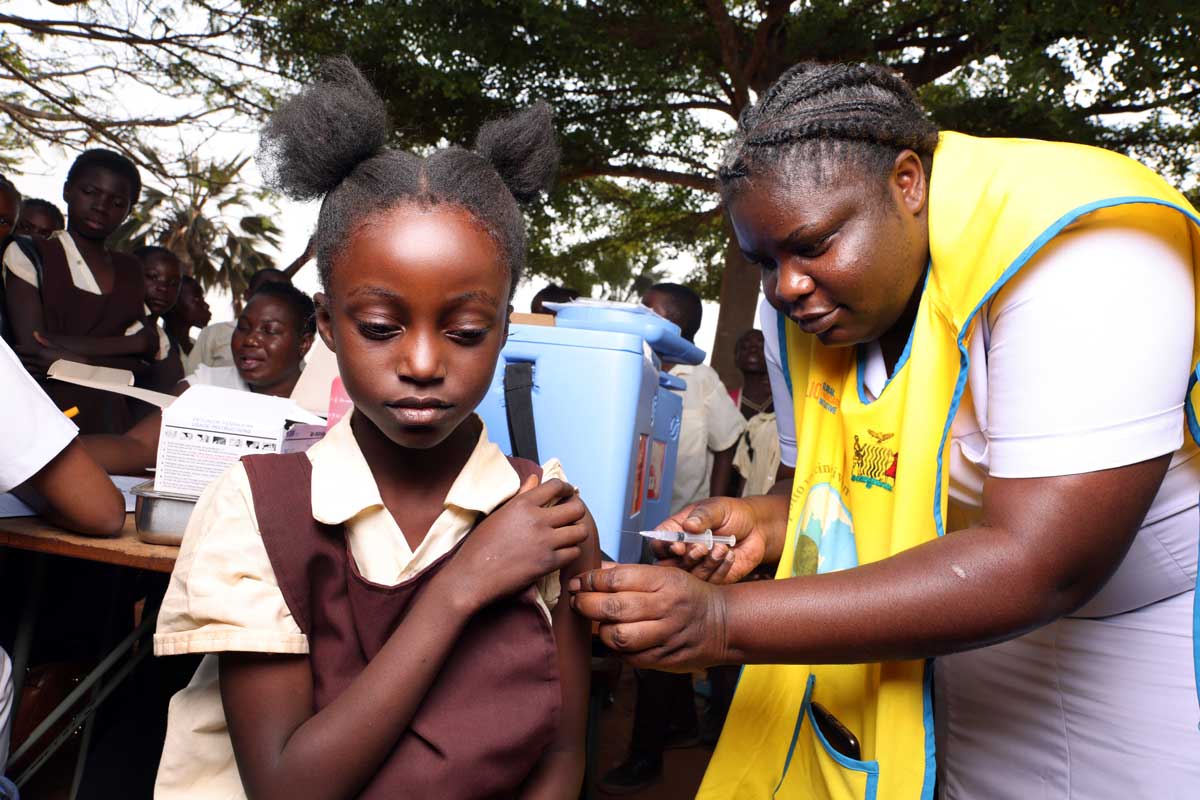Preventive HPV vaccines work. Now a new discovery could also help eliminate existing cancers too
A newly identified immune system ‘roadblock’ may explain why HPV vaccines given after infection struggle.
- 25 August 2025
- 2 min read
- by Linda Geddes

The vaccines that prevent HPV-related cancers are a medical success story.
But once the virus has taken hold, they have limited effectiveness. Now researchers think they’ve finally figured out why – and what to do about it.
Cervical cancer is one of the most common causes of cancer deaths in women globally, and almost all cases are caused by high-risk strains of human papillomavirus (HPV).
Existing HPV vaccines are extremely good at preventing these infections if they’re given before exposure to these common viruses, which is why they’re offered to adolescents.
But while ‘therapeutic’ vaccines that could be given after HPV exposure - e.g., following an abnormal smear test or cancer diagnosis - are being developed, these have limited effectiveness.
A new study provides important insights into why this might be: it seems the most common cancer-causing strain of HPV – HPV16 – undermines the body’s defences by reprogramming immune cells that usually help to defend the body from cancer.
Have you read?
Immune blockade
The research, by Martin Kast at the University of Southern California’s Keck School of Medicine in Los Angeles and colleagues, focused on a protein called Interleukin-23 or IL-23, which had previously been implicated in cervical and throat cancers.
Through a series of experiments in cell cultures and mice, they discovered that HPV prompts nearby immune cells to release this protein, which prevents T-cells from attacking HPV-infected cells, enabling tumours to grow.
“In order to eliminate the cancer, T-cells need to proliferate and destroy infected cells. But IL-23 stops them from working effectively, so the tumour keeps growing,” Kast said.
They also discovered that blocking IL-23 with an existing antibody increased the number of T-cells around HPV-related tumours.
When they combined it with a candidate HPV therapeutic vaccine, the antibody triggered a stronger immune response and led to longer survival than either treatment alone. The results were published in the Journal for ImmunoTherapy of Cancer.
Because IL-23 neutralising antibodies are already approved by the US Food and Drug Administration for treating psoriasis and other conditions, this could potentially provide a promising and rapid approach to making therapeutic HPV vaccine candidates work more effectively, Kast said.
He and his team are currently developing their own therapeutic vaccine, which they will test in combination with IL-23 blocking antibodies.
The discovery may also have implications for cancers unrelated to HPV where IL-23 is also found at high levels, such as testicular and bladder cancers.






